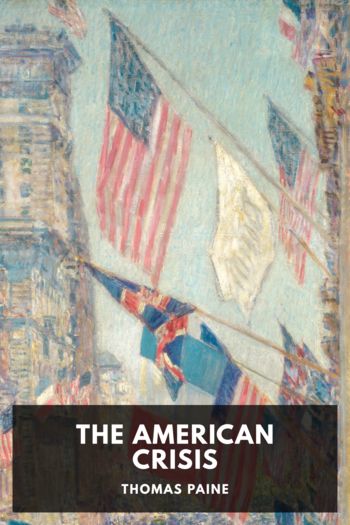Fateful Lightning: A New History of the Civil War & Reconstruction, Allen Guelzo [best thriller novels of all time txt] 📗

- Author: Allen Guelzo
Book online «Fateful Lightning: A New History of the Civil War & Reconstruction, Allen Guelzo [best thriller novels of all time txt] 📗». Author Allen Guelzo
Lincoln was not willing to be thrown on the defensive so easily. Principally, Lincoln attacked the popular sovereignty scheme as having no meaning after Dred Scott. In the debate at Freeport, Lincoln forced the spotlight onto the incompatibility of popular sovereignty with Dred Scott by posing a question to Douglas: “Can the people of the United States Territory, in any lawful way, against the wish of any citizen of the United States, exclude slavery from its limits prior to the formation of a State constitution?” Douglas had no choice, at Freeport and elsewhere, but to answer yes, in order to preserve his own political integrity and win an election in Illinois, where white voters wanted assurances that popular sovereignty really would keep slavery out. “It matters not what way the Supreme Court may hereafter decide as to the abstract question whether slavery may or may not go into a Territory under the Constitution, the people have the lawful means to introduce it or exclude it as they please,” Douglas irritably responded. The people could do this, in spite of Dred Scott, by passively refusing to enact slave codes, since “slavery cannot exist a day or an hour anywhere, unless it is supported by local police regulations.”36
That meant, as Lincoln later pointed out, that what the Supreme Court had declared lawful—slavery in the territories—could somehow be rendered unlawful without the rendering being in any way contradictory. In turn, it meant that any territory that voted itself free might just as easily vote itself slave if the popular will later on altered its “police regulations.” Illinoisans who hated abolition because (as Douglas put it) abolition meant an influx of freed blacks into Illinois had to be just as suspicious of popular sovereignty, since (as Lincoln put it in his own appeal to white racial prejudice) Illinoisans who emigrated to a free territory today might find it a slave territory tomorrow. “I am in favor,” added Lincoln, of keeping the territories as “an outlet for free white people everywhere, the world over,—in which … all other men from all the world, may find new homes and better their condition in life.”37 This effectively reduced popular sovereignty to what Lincoln had all along insisted it was, a subterfuge.
Moreover, urged Lincoln, even if popular sovereignty could somehow ensure that the Union could peacefully endure half slave and half free, such a divided arrangement flew in the face of the real intentions of the framers of the American republic. “When this Government was first established,” Lincoln said, “it was the policy of its founders to prohibit the spread of slavery into the new Territories of the United States, where it had not existed.” All that Lincoln asked “is that it should be placed back again upon the basis that the fathers of our Government originally placed it upon. I have no doubt that it would become extinct… if we but re-adopted the policy of the fathers, by restricting it to the limits it has already covered,—restricting it from the new Territories.” Douglas’s dogma of popular sovereignty was not perpetuating the American republic; it was perverting it. And instead of popular sovereignty guaranteeing peace, it would only guarantee contention. “What right have we then to hope,” Lincoln asked, “that the trouble will cease,—that the agitation will come to an end,—until it shall either be placed back where it originally stood, and where the fathers originally placed it, or, on the other hand until it shall entirely master all opposition.”38 At that point, slavery would plant itself not only in the territories but in the free states as well, and Douglas would be responsible for the very racial strife that he had fastened on Lincoln.
Lincoln had a larger point to make than merely the theoretical inconsistencies of popular sovereignty. Douglas’s error lay not only in failing to see that popular sovereignty was an impractical instrument for containing slavery but also in failing to see that slavery itself was a moral wrong, a violation of the natural right to “life, liberty, and the pursuit of happiness” written into the very frame of human nature, and “made so plain by our good Father in Heaven, that all feel and understand it, even down to brutes and creeping insects.” Even “the ant, who has toiled and dragged a crumb to his nest, will furiously defend the fruit of his labor, against whatever robber assails him.” If the ants understood by simple instinct that the robbery of what they had worked for was naturally wrong, then it was plain that human beings must, too—“so plain, that the most dumb and stupid slave that ever toiled for a master, does constantly know that he is wronged.”39
As a violation of natural law, slavery did not deserve, and should not claim, the protection of popular sovereignty. Douglas had advertised himself as the champion of democratic government by insisting that the people, not Congress or the Supreme Court, were the only ones who had the right to choose whether their states should be slave or free. Lincoln replied that the will of the people could never be so absolute as to vote some people





Comments (0)